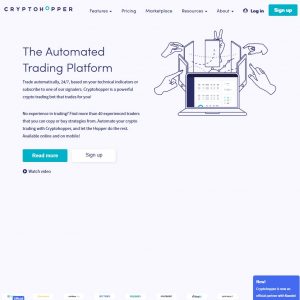
The FBI lists 23 of the most common scams and frauds current in the US
Here we look at some of those listed scams most likely to affect you in your day to day life and what to do to avoid them.
Whether you’ve had a suspicious looking email promising you millions of dollars for no risk, you’re considering buying a “miracle” supplement, an oddly cheap product online or a you’ve discovered a can’t-lose investment – you’re on the verge of being scammed. Fight back!
Advance Fee Schemes
 An advance fee scheme occurs when the victim pays money to someone in anticipation of receiving something of greater value—such as a loan, contract, investment, or gift—and then receives little or nothing in return.
An advance fee scheme occurs when the victim pays money to someone in anticipation of receiving something of greater value—such as a loan, contract, investment, or gift—and then receives little or nothing in return.
The variety of advance fee schemes is limited only by the imagination of the con artists who offer them. They may involve the sale of products or services, the offering of investments, lottery winnings, “found money,” or many other “opportunities.” Clever con artists will offer to find financing arrangements for their clients who pay a “finder’s fee” in advance. They require their clients to sign contracts in which they agree to pay the fee when they are introduced to the financing source. Victims often learn that they are ineligible for financing only after they have paid the “finder” according to the contract. Such agreements may be legal unless it can be shown that the “finder” never had the intention or the ability to provide financing for the victims.
- If the offer of an “opportunity” appears too good to be true, it probably is. Follow common business practice. For example, legitimate business is rarely conducted in cash on a street corner.
- Know who you are dealing with. If you have not heard of a person or company that you intend to do business with, learn more about them. Depending on the amount of money that you plan on spending, you may want to visit the business location, check with the Better Business Bureau, or consult with your bank, an attorney, or the police.
- Make sure you fully understand any business agreement that you enter into. If the terms are complex, have them reviewed by a competent attorney.
- Be wary of businesses that operate out of post office boxes or mail drops and do not have a street address. Also be suspicious when dealing with persons who do not have a direct telephone line and who are never in when you call, but always return your call later.
- Be wary of business deals that require you to sign nondisclosure or non-circumvention agreements that are designed to prevent you from independently verifying the bona fides of the people with whom you intend to do business. Con artists often use non-circumvention agreements to threaten their victims with civil suit if they report their losses to law enforcement.
Nigerian Letter or 419 Fraud
 Nigerian letter frauds combine the threat of impersonation fraud with a variation of an advance fee scheme in which a letter mailed, or e-mailed, from Nigeria offers the recipient the “opportunity” to share in a percentage of millions of dollars that the author—a self-proclaimed government official—is trying to transfer illegally out of Nigeria.
Nigerian letter frauds combine the threat of impersonation fraud with a variation of an advance fee scheme in which a letter mailed, or e-mailed, from Nigeria offers the recipient the “opportunity” to share in a percentage of millions of dollars that the author—a self-proclaimed government official—is trying to transfer illegally out of Nigeria.
The recipient is encouraged to send information to the author, such as blank letterhead stationery, bank name and account numbers, and other identifying information using a fax number given in the letter or return e-mail address provided in the message.
The scheme relies on convincing a willing victim, who has demonstrated a “propensity for larceny” by responding to the invitation, to send money to the author of the letter in Nigeria in several installments of increasing amounts for a variety of reasons.
Payment of taxes, bribes to government officials, and legal fees are often described in great detail with the promise that all expenses will be reimbursed as soon as the funds are spirited out of Nigeria. In actuality, the millions of dollars do not exist, and the victim eventually ends up with nothing but loss.
Once the victim stops sending money, the perpetrators have been known to use the personal information and checks that they received to impersonate the victim, draining bank accounts and credit card balances. While such an invitation impresses most law-abiding citizens as a laughable hoax, millions of dollars in losses are caused by these schemes annually. Some victims have been lured to Nigeria, where they have been imprisoned against their will along with losing large sums of money.
The Nigerian government is not sympathetic to victims of these schemes, since the victim actually conspires to remove funds from Nigeria in a manner that is contrary to Nigerian law. The schemes themselves violate section 419 of the Nigerian criminal code, hence the label “419 fraud.”
- If you receive a letter or e-mail from Nigeria asking you to send personal or banking information, do not reply in any manner. Send the letter or message to the U.S. Secret Service, your local FBI office, or the U.S. Postal Inspection Service. You can also register a complaint with the Federal Trade Commission’s Complaint Assistant.
- If you know someone who is corresponding in one of these schemes, encourage that person to contact the FBI or the U.S. Secret Service as soon as possible.
- Be skeptical of individuals representing themselves as Nigerian or foreign government officials asking for your help in placing large sums of money in overseas bank accounts.
- Do not believe the promise of large sums of money for your cooperation.
- Guard your account information carefully.
Investment Fraud
 Investment fraud involves the illegal sale or purported sale of financial instruments. The typical investment fraud schemes are characterized by offers of low- or no-risk investments, guaranteed returns, overly-consistent returns, complex strategies, or unregistered securities. Examples of investment fraud include advance fee fraud, Ponzi schemes, pyramid schemes, and market manipulation fraud.
Investment fraud involves the illegal sale or purported sale of financial instruments. The typical investment fraud schemes are characterized by offers of low- or no-risk investments, guaranteed returns, overly-consistent returns, complex strategies, or unregistered securities. Examples of investment fraud include advance fee fraud, Ponzi schemes, pyramid schemes, and market manipulation fraud.
“Ponzi” schemes promise high financial returns or dividends not available through traditional investments. Instead of investing the funds of victims, however, the con artist pays “dividends” to initial investors using the funds of subsequent investors. The scheme generally falls apart when the operator flees with all of the proceeds or when a sufficient number of new investors cannot be found to allow the continued payment of “dividends.”
This type of fraud is named after its creator—Charles Ponzi of Boston, Massachusetts. In the early 1900s, Ponzi launched a scheme that guaranteed investors a 50 percent return on their investment in postal coupons. Although he was able to pay his initial backers, the scheme dissolved when he was unable to pay later investors.
 Pyramid Schemes as in Ponzi schemes, the money collected from newer victims of pyramid schemes is paid to earlier victims to provide a veneer of legitimacy. In pyramid schemes, however, the victims themselves are induced to recruit further victims through the payment of recruitment commissions.
Pyramid Schemes as in Ponzi schemes, the money collected from newer victims of pyramid schemes is paid to earlier victims to provide a veneer of legitimacy. In pyramid schemes, however, the victims themselves are induced to recruit further victims through the payment of recruitment commissions.
More specifically, pyramid schemes—also referred to as “franchise fraud” or “chain referral schemes”—are marketing and investment frauds in which an individual is offered a distributorship or franchise to market a particular product. The real profit is earned, not by the sale of the product, but by the sale of new distributorships. Emphasis on selling franchises rather than the product eventually leads to a point where the supply of potential investors is exhausted and the pyramid collapses.
At the heart of each pyramid scheme is typically a representation that new participants can recoup their original investments by inducing two or more prospects to make the same investment. Promoters fail to tell prospective participants that this is mathematically impossible for everyone to do, since some participants drop out, while others recoup their original investments and then drop out.
Market manipulation fraud—commonly referred to as a “pump and dump”—creates artificial buying pressure for a targeted security, generally a low-trading volume issuer in the over-the-counter securities market largely controlled by the fraud perpetrators. This artificially-increased trading volume has the effect of artificially increasing the price of the targeted security (i.e., the “pump”), which is rapidly sold off into the inflated market for the security by the fraud perpetrators (i.e., the “dump”). This results in illicit gains for the perpetrators and losses for innocent third-party investors. Typically, the increased trading volume is generated by inducing unwitting investors to purchase shares of the targeted security through false or deceptive sales practices and/or public information releases.
A modern variation on this scheme involves largely foreign-based computer criminals gaining unauthorized access to the online brokerage accounts of unsuspecting victims in the United States. These victim accounts are then utilized to engage in coordinated online purchases of the targeted security to affect the pump portion of a manipulation, while the fraud perpetrators sell their pre-existing holdings in the targeted security into the inflated market to complete the dump.
These investment fraud schemes often seek to victimize affinity groups—such as groups with a common religion or ethnicity—to utilize the common interests to build trust to effectively operate the investment fraud against them. The perpetrators range from professional investment advisers to persons trusted and interacted with daily, such as a neighbor or sports coach. The fraudster’s ability to foster trust makes these schemes so successful. Investors should use scrutiny and gather as much information as possible before entering into any new investment opportunities.
- Don’t judge a person or company by their website; flashy websites can be set up quickly.
- Don’t invest in anything you are not absolutely sure about. Do your homework on the investment and the company to ensure that they are legitimate.
- Check out other websites regarding this person/company.
- Be cautious when responding to special investment offers, especially through unsolicited e-mail.
- Be cautious when dealing with individuals/companies from outside your own country.
- Inquire about all the terms and conditions.
- Understand as much as possible about how the auction works, what your obligations are as a buyer, and what the seller’s obligations are before you bid.
- Find out what actions the website/company takes if a problem occurs and consider insuring the transaction and shipment.
- Learn as much as possible about the seller, especially if the only information you have is an e-mail address. If it is a business, check the Better Business Bureau where the seller/business is located.
- Examine the feedback on the seller.
- Determine what method of payment the seller is asking from the buyer and where he/she is asking to send payment.
- If possible, purchase items online using your credit card, because you can often dispute the charges if something goes wrong.
- Be cautious when dealing with sellers outside the United States. If a problem occurs with the auction transaction, it could be much more difficult to rectify.
- Ask the seller about when delivery can be expected and whether the merchandise is covered by a warranty or can be exchanged if there is a problem.
- Make sure there are no unexpected costs, including whether shipping and handling is included in the auction price.
- There should be no reason to give out your social security number or driver’s license number to the seller.
- If it sounds too good to be true, it probably is. Watch out for “secret formulas” or “breakthroughs.”
- Don’t be afraid to ask questions about the product—find out exactly what it should and should not do for you.
- Research a product thoroughly before buying it. Call the Better Business Bureau to find out if other people have complained about the product.
- Be wary of products that claim to cure a wide variety of illnesses—particularly serious ones—that don’t appear to be related.
- Be aware that testimonials and/or celebrity endorsements are often misleading.
- Be very careful of products that are marketed as having no side effects.
- Question products that are advertised as making visits to a physician unnecessary.
- Always consult your doctor before taking any dietary or nutritional supplement.
- Make sure you are purchasing merchandise from a reputable source.
- Do your homework on the individual or company to ensure that they are legitimate.
- Obtain a physical address rather than simply a post office box and a telephone number, and call the seller to see if the telephone number is correct and working.
- Send an e-mail to the seller to make sure the e-mail address is active, and be wary of those that utilize free e-mail services where a credit card wasn’t required to open the account.
- Consider not purchasing from sellers who won’t provide you with this type of information.
- Check with the Better Business Bureau from the seller’s area.
- Check out other websites regarding this person/company.
- Don’t judge a person or company by their website; flashy websites can be set up quickly.
- Be cautious when responding to special investment offers, especially through unsolicited e-mail.
- Be cautious when dealing with individuals/companies from outside your own country.
- Inquire about returns and warranties.
- If possible, purchase items online using your credit card, because you can often dispute the charges if something goes wrong.
- Make sure the transaction is secure when you electronically send your credit card numbers.
- Consider using an alternate payment service.
- The seller is moving or being deployed by the military.
- The seller received the vehicle as part of a divorce settlement.
- The vehicle belonged to a relative who has died.
Reverse Mortgage Scams
 The FBI and the U.S. Department of Housing and Urban Development Office of Inspector General (HUD-OIG) urge consumers, especially senior citizens, to be vigilant when seeking reverse mortgage products. Reverse mortgages, also known as home equity conversion mortgages (HECM), have increased more than 1,300 percent between 1999 and 2008, creating significant opportunities for fraud perpetrators.
The FBI and the U.S. Department of Housing and Urban Development Office of Inspector General (HUD-OIG) urge consumers, especially senior citizens, to be vigilant when seeking reverse mortgage products. Reverse mortgages, also known as home equity conversion mortgages (HECM), have increased more than 1,300 percent between 1999 and 2008, creating significant opportunities for fraud perpetrators.
Reverse mortgage scams are engineered by unscrupulous professionals in a multitude of real estate, financial services, and related companies to steal the equity from the property of unsuspecting senior citizens or to use these seniors to unwittingly aid the fraudsters in stealing equity from a flipped property.
In many of the reported scams, victim seniors are offered free homes, investment opportunities, and foreclosure or refinance assistance. They are also used as straw buyers in property flipping scams. Seniors are frequently targeted through local churches and investment seminars, as well as television, radio, billboard, and mailer advertisements.
A legitimate HECM loan product is insured by the Federal Housing Authority. It enables eligible homeowners to access the equity in their homes by providing funds without incurring a monthly payment. Eligible borrowers must be 62 years or older who occupy their property as their primary residence and who own their property or have a small mortgage balance. See the FBI/HUD Intelligence Bulletin for specific details on HECMs as well as other foreclosure rescue and investment schemes.
Internet Fraud
 Internet fraud is the use of Internet services or software with Internet access to defraud victims or to otherwise take advantage of them. Internet crime schemes steal millions of dollars each year from victims and continue to plague the Internet through various methods. Several high-profile methods include the following:
Internet fraud is the use of Internet services or software with Internet access to defraud victims or to otherwise take advantage of them. Internet crime schemes steal millions of dollars each year from victims and continue to plague the Internet through various methods. Several high-profile methods include the following:
Business E-Mail Compromise (BEC): A sophisticated scam targeting businesses working with foreign suppliers and companies that regularly perform wire transfer payments. The scam is carried out by compromising legitimate business e-mail accounts through social engineering or computer intrusion techniques to conduct unauthorized transfers of funds.
Data Breach: A leak or spill of data which is released from a secure location to an untrusted environment. Data breaches can occur at the personal and corporate levels and involve sensitive, protected, or confidential information that is copied, transmitted, viewed, stolen, or used by an individual unauthorized to do so.
Denial of Service: An interruption of an authorized user’s access to any system or network, typically one caused with malicious intent.
E-Mail Account Compromise (EAC): Similar to BEC, this scam targets the general public and professionals associated with, but not limited to, financial and lending institutions, real estate companies, and law firms. Perpetrators of EAC use compromised e-mails to request payments to fraudulent locations.
Malware/Scareware: Malicious software that is intended to damage or disable computers and computer systems. Sometimes scare tactics are used by the perpetrators to solicit funds from victims.
Phishing/Spoofing: Both terms deal with forged or faked electronic documents. Spoofing generally refers to the dissemination of e-mail which is forged to appear as though it was sent by someone other than the actual source. Phishing, also referred to as vishing, smishing, or pharming, is often used in conjunction with a spoofed e-mail. It is the act of sending an e-mail falsely claiming to be an established legitimate business in an attempt to deceive the unsuspecting recipient into divulging personal, sensitive information such as passwords, credit card numbers, and bank account information after directing the user to visit a specified website. The website, however, is not genuine and was set up only as an attempt to steal the user’s information.
Ransomware: A form of malware targeting both human and technical weaknesses in organizations and individual networks in an effort to deny the availability of critical data and/or systems. Ransomware is frequently delivered through spear phishing emails to end users, resulting in the rapid encryption of sensitive files on a corporate network. When the victim organization determines they are no longer able to access their data, the cyber perpetrator demands the payment of a ransom, typically in virtual currency such as Bitcoin, at which time the actor will purportedly provide an avenue to the victim to regain access to their data.
Internet auction fraud: This involves schemes attributable to the misrepresentation of a product advertised for sale through an Internet auction site or the non-delivery of products purchased through an Internet auction site. In advance of making a purchase on an Internet auction site, be sure to review the site’s fraud prevention tips and additional security alerts. to safeguard yourself as best as possible:
Fraudulent Cosmetics and “Anti-Aging” Products
 The volume of counterfeit cosmetics arriving in the U.S. is on the rise. The Internet has given consumers widespread access to health and beauty products—some labeled with “anti-aging” properties—that they don’t know are fake. Counterfeiters of personal care products increasingly view dealing in these fake items as a low-risk crime since many of them are located outside the U.S.
The volume of counterfeit cosmetics arriving in the U.S. is on the rise. The Internet has given consumers widespread access to health and beauty products—some labeled with “anti-aging” properties—that they don’t know are fake. Counterfeiters of personal care products increasingly view dealing in these fake items as a low-risk crime since many of them are located outside the U.S.
Government and industry studies and testing have discovered dangerous ingredients within counterfeit “anti-aging” products. Fraudulent cosmetics may contain arsenic, beryllium, and cadmium—all known carcinogens—along with high levels of aluminum and dangerous levels of bacteria from sources such as urine. Some of these products have caused conditions like acne, psoriasis, rashes, and eye infections.
Tips for Avoiding Fraudulent “Anti-Aging” Products include:
Non-Delivery of Merchandise
 Non-delivery of merchandise is a scheme most often linked to Internet auction fraud, in which a seller on an Internet auction website accepts payment for an item yet intentionally fails to ship it. Sellers like these sometimes will relist the item and attempt to sell it again through a different username.
Non-delivery of merchandise is a scheme most often linked to Internet auction fraud, in which a seller on an Internet auction website accepts payment for an item yet intentionally fails to ship it. Sellers like these sometimes will relist the item and attempt to sell it again through a different username.
Non-delivery of merchandise can also be considered a form of business fraud in a number of cases. For example, some web-based international companies advertise in the U.S. for affiliate opportunities, offering individuals the chance to sell high-end electronic items, such as plasma television sets and home theater systems, at significantly reduced prices. When these items sell and the funds are forwarded to the companies from their affiliates, the items fail to ship to the individuals who sold them and thus never make it to their respective buyers.
Online Vehicle Sale Fraud
 Criminal perpetrators may post fraudulent online classified advertisements offering vehicles for sale that are not, nor have ever been, in their possession.
Criminal perpetrators may post fraudulent online classified advertisements offering vehicles for sale that are not, nor have ever been, in their possession.
The fake advertisements usually include photos matching the description of the vehicle and a phone number or e-mail address to contact the supposed seller. Once contact is established, the criminal sends the intended buyer additional photos along with an explanation for the discounted price and the urgency of the transaction. Common reasons provided include:
The criminal makes the fraud appear legitimate by deceptively claiming partnership with a reputable company, such as eBay, and assuring that the transaction will occur through the third party’s buyer protection program.
They may go so far as to send a fraudulent toll-free number that impersonates the third party. The buyer is told to purchase prepaid gift cards in the sale amount and to share the card codes with the criminal, who then notifies the buyer they will be receiving the vehicle in a number of days.
After the transaction is complete, the criminal typically ignores all follow-up calls, text messages, or e-mails from the buyer or may demand additional payments. In the end, the vehicle is not delivered and the buyer is never able to recuperate their losses.
If you believe you’ve been a victim of any of these scams, please file a complaint with the FBI’s Internet Crime Complaint Center (IC3) at www.ic3.gov







Leave a Reply